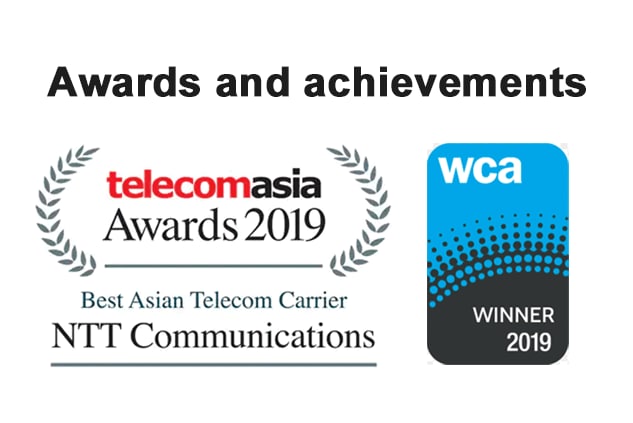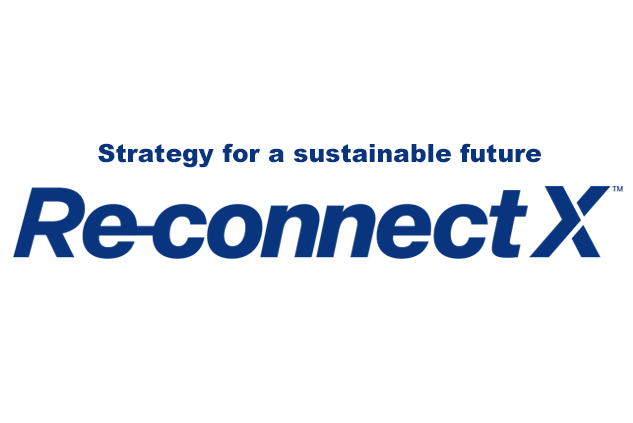Cases of Re-connect X 04
NTT Communications is addressing social issues through initiatives based on its Re-connect X business vision.

Circular Renewables Platform
that Promotes the Development
of a Circular Economy by Utilizing ICT

Urgent Need to Break Away from the Cycle of Consuming Resources Beyond Their Limits
In the face of worsening environmental issues such as the depletion of natural resources, climate change, and marine plastic pollution, it has been pointed out that we have reached the limits of a linear economy, in which we have been taking, making, using, and disposing of resources. The realization of a circular economy, in which we limit the input and consumption of resources and utilize finite resources through recycling, is a globally recognized initiative also linked to achieving the SDGs. However, the use of renewables—and plastics in particular—has remained at low levels in Japan due to the difficulties of assuring quality and stable procurement. There is an urgent need to resolve this so as to comply with regulations promoting the recycling of plastic resources that will come into effect in 2022.
Constructing a Platform for Sharing Information on Recyclable Resources
In April 2021, NTT Communications began conducting a trial for a Circular Renewables Platform aimed at realizing a circular economy, along with Sojitz Corporation, Recotech, Co., Ltd., and Nissho Electronics Corporation. The project is based on Recotech’s Material Pool System, which has been combined with our Smart Data Platform to create a mechanism enabling users to view real-time information on the volume, type, quality, and location of recyclable resources such as plastic that are being discarded by participating companies, with the goal of facilitating transactions between suppliers and buyers. The trials are taking place in various locations by enlisting partners primarily consisting of businesses seeking to discard recyclables, such as commercial facilities and their tenants, and businesses seeking to procure recyclable resources. The participants will trade recyclables and assess their quality to verify the effectiveness of the platform and to ascertain corporate needs. NTT Communications will take responsibility for developing the flow of collecting, accumulating, analyzing, and using data related to recyclables. We plan to commercialize the platform after fiscal 2022.

Leading to the Transition to a Circular Economy
The real-world implementation of the Circular Renewables Platform and its wide acceptance as a business tool will lead to reducing waste and improving collection and recycling ratios, signifying major progress in the transition to a circular economy. Specifically, the platform will enable matching the needs of companies that had been discarding recyclables due to the lack of buyers with those that have not had a channel for procuring recyclables. This is expected to lead to a social system that can effectively and economically circulate massive volumes of recyclable resources with guaranteed traceability (information on origin, distribution route, materials and ingredients, and quality level).

-
Yoichi Suzuki
Senior Manager, Smart Factory,
Smart World Business DepartmentThe use of ICT and co-creation with partners are the key elements for realizing a circular economy. We seek to construct a circular platform that encompasses the entire product life cycle, from manufacturing and sales to collection, recycling and reuse, and disposal. In doing so, we face many challenges, such as establishing the regulatory framework, optimizing logistics, raising the efficiency of sorting waste, and reducing the cost of the process. We need an initiative that brings together the skills and knowledge of industry, government, and academia. We would like to see as many companies as possible participate in this effort to construct a digital infrastructure for the circular economy.
Note: The content of this article is as of December 2021

 EN
EN






